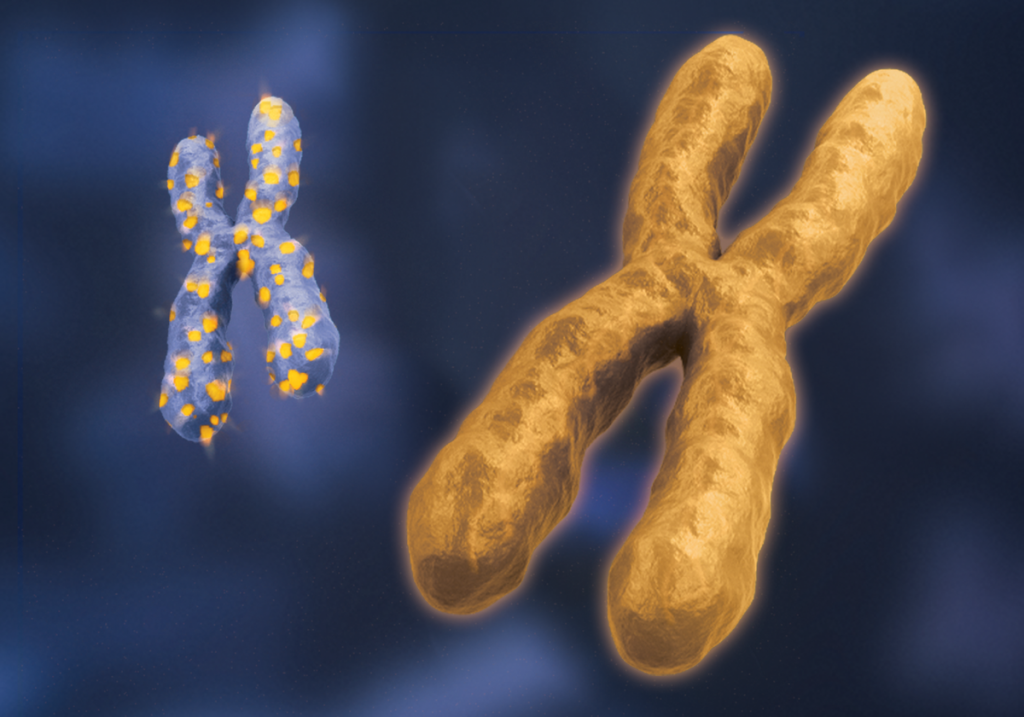
What Does Your X Chromosome Say About Your Risk of Chronic Disease?
Your X chromosome contains clues as to whether or not you might develop cancer and heart disease, according to latest research from TwinsUK.
Chromosomes are lengths of DNA that contain genes on them. Human males have both an X and a Y chromosome, and females have two X chromosomes (XX). We only need one dose of the genes on the X chromosome, so in females, one of the X chromosomes in every cell is switched off so they do not get double the dose.
This process of X-inactivation is meant to happen at random, but researchers have identified that in some people as they age, one X is more likely to be inactivated than the other. In this study, the team identified that skew in X-inactivation (XCI) is associated with chronic health outcomes. They found that XCI-skew in older females can pick up on changes that occur in a population of blood cells and can be used as a potential biomarker to recognise the risk of developing chronic conditions.
Ageing is a complex process that involves different cellular and molecular features, which includes alteration to blood cells and makes an individual more susceptible to developing chronic conditions.
The team studied 1,575 female TwinsUK members to examine XCI skew and its link with ageing, risk of developing heart disease, and cancer diagnoses.
Researchers also found that XCI-skew is linked with the number of years an individual has lived and increases over someone’s life span. The changes in the frequency of XCI-skew were examined across increasing ages and identified 12% of participants below 40 years old displaying XCI-skew, 28% of 40–59-year old’s; 37% of 60–69-year old’s; and 44% of those over 70-year-old.
Furthermore, results showed that a skewed XCI can predict future cancer detection in a 10-year follow-up. They found that using a heart disease risk score, picked up on specific risk factors, and can predict the risk of a major heart disease event in the next 10 years, with a heart disease risk score greater than 7.5% characterizing an intermediate-risk, and a heart disease risk score greater than 20% characterizing substantial risk.
A limitation of the study was that the sample sizes restricted the chances of carrying out investigations on specific deaths or cancer types.
First author Dr Amy Roberts explained:
“This study provides a better understanding of the link between X chromosome inactivation and our health and might help explain why some twins develop chronic diseases even if their co-twin does not. Further research is needed to convert the biological usefulness of skewed XCI into clinical applications for investigating the link between blood cell changes as someone ages and association with chronic disease, despite chromosomal sex.”
This paper is part of a broader programme of work investigating how the X chromosome affects our health.
